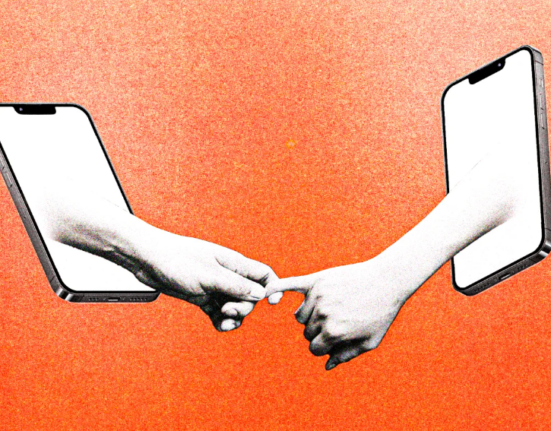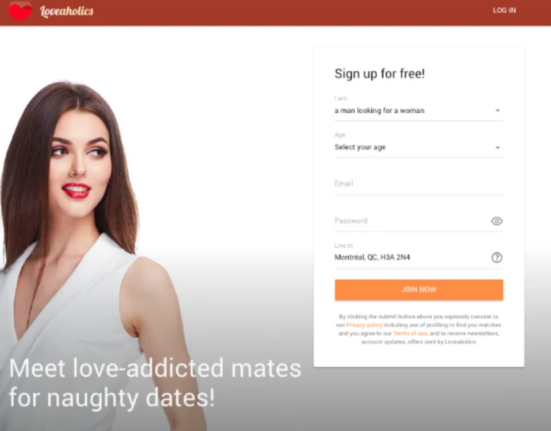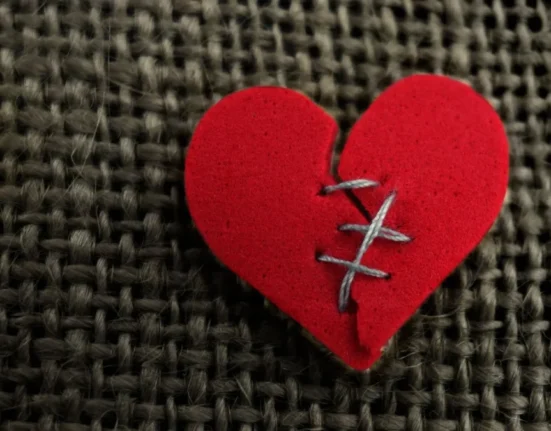Last Updated on March 25, 2025 by Rachel Hall
Dating apps have revolutionised the way people connect in the digital age. With over 323 million people who use them worldwide, they are considered by many to be the modern way to find love. However, beneath the surface lies a more troubling phenomenon: the rise in cosmetic surgery among women, linked closely to the popularity of dating apps.
This article explores the dating apps linked to rising rates of cosmetic procedures and how they are shaping self-esteem among women. Drawing on findings from the University of South Australia and other sources, we uncover the key insights you need to understand this evolving issue.
- Truth #1: The Visual Nature of Dating Apps Fuels Unrealistic Beauty Standards
- Truth #2: Swipe Culture Is Linked to Body Dissatisfaction and Low Self-Esteem
- Truth #3: Acceptance of Cosmetic Surgery Is Skyrocketing Among Women Who Use Dating Apps
- Truth #4: The Obsession with Cosmetic Surgery Is a Global Trend
- Truth #5: Cosmetic Enhancements Are Marketed as Essential Tools for Success in Online Dating
- Truth #6: Authenticity in Dating Apps Could Help Reverse the Trend
- Truth #7: You Have the Power to Break the Cycle
- Conclusion: Swipe Culture Is Redefining Beauty, but We Can Change the Narrative
- FAQs About Dating Apps and Cosmetic Surgery Trends
Truth #1: The Visual Nature of Dating Apps Fuels Unrealistic Beauty Standards
The visual nature of dating apps has transformed dating into an appearance-based competition. The reliance on photographs, often enhanced or filtered, has created unrealistic beauty standards that many women feel pressured to meet. This swipe-based dating app culture, where decisions are made within seconds based solely on profile pictures, encourages superficiality and heightens the desire for cosmetic surgery.
A new study conducted by the University of South Australia surveyed 308 Australian women aged 18 to 72. The results shed light on how dating app users are significantly more likely to undergo cosmetic procedures. Of these women, nearly half had used a dating app in the past two years, and one in five reported undergoing at least one cosmetic procedure, including dermal fillers and anti-wrinkle injections.
These findings indicate that the popularity of dating apps may contribute to a widespread obsession with cosmetic surgery, driven by the pressure to maintain a flawless digital appearance.
Truth #2: Swipe Culture Is Linked to Body Dissatisfaction and Low Self-Esteem
The impact of dating apps on mental health is significant. The constant evaluation based on looks fosters body dissatisfaction and erodes self-worth. Women are encouraged to conform to narrow beauty ideals, often through deceptive self-presentation on dating profiles. This can include using filters, editing images, or making strategic choices about which features to highlight.
Dating app use is linked to increased anxiety and low self-esteem among women, particularly those who feel they fall short of the standards set by social media use in general. Research suggests that the frequency of dating app use is not the strongest predictor of these issues. Instead, the pressure of self-presentation style—how one chooses to present oneself on these platforms—is a key factor in the increased acceptance of cosmetic surgery.
The University of South Australia found that women engaging in this type of self-presentation are more likely to express positive attitudes toward cosmetic surgery and to consider cosmetic enhancements as a means of bridging the gap between their digital persona and real-life appearance.
Truth #3: Acceptance of Cosmetic Surgery Is Skyrocketing Among Women Who Use Dating Apps
The acceptance of cosmetic surgery has been growing steadily, but it is now significantly more positive among women who use dating apps. These platforms have reduced the stigma associated with finding love online, but they have also contributed to a surge in cosmetic surgery attitudes.
According to the University of South Australia, women aged 18 to 72 who had used dating apps were more likely to undergo cosmetic surgery compared to non-users. Procedures such as eyelid surgery, dermal fillers, and anti-wrinkle injections are now commonplace. For some, the motivation is a belief that enhancing their appearance will lead to more matches and better dating prospects.
This obsession with cosmetic surgery is exacerbated by the design of swipe-based dating apps, where physical attractiveness often outweighs personality or shared values.
Truth #4: The Obsession with Cosmetic Surgery Is a Global Trend
This trend is not isolated to Australia. The cosmetic surgery trends driven by online dating are evident worldwide. In countries where online dating has become increasingly popular, cosmetic procedures are on the rise.
The dating website eHarmony predicting that by 2040, over 70% of relationships will begin online, underscores how deeply embedded these platforms are in our lives. As dating apps specifically continue to dominate, the expectation to look “perfect” on screen becomes more pervasive.
Women across the globe are increasingly undergoing cosmetic procedures and digitally altering their appearance to stay competitive. This fuelling of an obsession with cosmetic surgery creates a self-perpetuating cycle where apps are fuelling an obsession with perfection.
Truth #5: Cosmetic Enhancements Are Marketed as Essential Tools for Success in Online Dating
The cosmetic surgery industry has seized the opportunity to market cosmetic enhancements as necessary for success in online dating. Clinics promote procedures like dermal fillers and anti-wrinkle injections, often highlighting their potential to improve dating profiles and increase match rates.
Some apps could offer built-in body image interventions, but at present, the burden lies with users to navigate these pressures. The lack of regulation and ethical oversight means that women wanting to change their appearance are vulnerable to marketing strategies that exploit their insecurities.
Moreover, dating apps may reinforce these insecurities by prioritising appearance in their algorithms. Without interventions, the desire for cosmetic surgery will likely continue to grow unchecked.
Truth #6: Authenticity in Dating Apps Could Help Reverse the Trend
How Can Dating Apps Improve?
There is a growing movement to improve the authenticity of dating app use. Developers are exploring ways to encourage more genuine connections, reducing the emphasis on appearance. Features like personality-based matching algorithms and authenticity verification badges are gaining traction.
Experts from the University of South Australia recommend that apps could offer built-in body image interventions, such as self-compassion exercises. These features could better identify the motivations for women wanting to enhance their appearance and provide support mechanisms to address underlying issues.
By fostering authenticity of dating app use, platforms can help combat the negative impact of dating apps on body image and mental health.
Truth #7: You Have the Power to Break the Cycle
5 Practical Ways to Protect Your Self-Esteem in the World of Swipe Culture
- Curate Genuine Dating Profiles
Focus on authenticity rather than perfection. Showcase your interests and values alongside photos that represent your true self. - Limit Dating App Use
Reducing the frequency of dating app use can help minimise exposure to superficial judgments and relieve pressure. - Seek Positive Role Models
Follow individuals and influencers who promote body positivity and challenge unrealistic beauty standards. - Choose Alternative Platforms
Explore dating apps specifically designed to prioritise personality and compatibility over appearance. - Pursue Professional Support
If you are experiencing persistent body dissatisfaction, consider speaking to a mental health professional. Body image interventions can be highly effective in restoring confidence.
Conclusion: Swipe Culture Is Redefining Beauty, but We Can Change the Narrative
The popularity of dating apps has created an environment where appearance often takes precedence over personality and compatibility. As online dating has become increasingly central to modern relationships, the pressure to conform to narrow beauty standards has led to an increased acceptance of cosmetic surgery, particularly among women.
However, by embracing the authenticity of dating app use, promoting realistic expectations, and supporting women wanting to change for the right reasons, we can reverse these damaging trends. Both dating app users and developers have a role to play in reshaping the modern way to find love into a healthier, more inclusive experience.
FAQs About Dating Apps and Cosmetic Surgery Trends
Are dating apps causing more women to get cosmetic surgery?
Evidence suggests that dating apps are fuelling a rise in cosmetic surgery among women, particularly those who engage heavily with swipe-based dating apps.
What are the most common procedures?
Among the most popular cosmetic procedures among women are dermal fillers, anti-wrinkle injections, and eyelid surgery.
How can dating apps reduce this trend?
Experts recommend that dating apps may implement body image interventions and promote the authenticity of dating apps to alleviate pressure.

Rachel Hall, M.A., completed her education in English at the University of Pennsylvania and received her master’s degree in family therapy from Northern Washington University. She has been actively involved in the treatment of anxiety disorders, depression, OCD, and coping with life changes and traumatic events for both families and individual clients for over a decade. Her areas of expertise include narrative therapy, cognitive behavioral therapy, and therapy for traumatic cases. In addition, Rachel conducts workshops focusing on the psychology of positive thinking and coping skills for both parents and teens. She has also authored numerous articles on the topics of mental health, stress, family dynamics and parenting.








Leave feedback about this